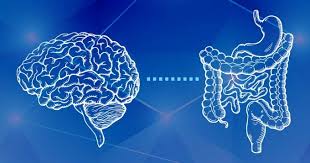The relationship between sleep deprivation and intestinal microbiota: a literature review
DOI:
https://doi.org/10.61661/congresso.cbmev.7.2024.139Keywords:
dysbiosis, sleep deprivation, intestinal microbiotaAbstract
Introduction: Today's society, due to a dysfunctional pattern, lives a lifestyle marked by sleep deprivation (SD). The study aims to study the influence of such habits on gastrointestinal health, in which a bidirectional causal relationship is observed, such that SD causes an imbalance in the gastrointestinal microbiota, in the same way that gastrointestinal dysbiosis causes changes in the circadian rhythm. Objective: The following work aims to analyze the relationship between sleep deprivation and the intestinal microbiota. Methodology: This is a literature review, with the research being developed through its guiding question: "What are the consequences of sleep deprivation on the intestinal microbiota?". The searches were performed through research in the PubMed Central (PMC) database. The descriptors were used in combination with the Boolean term "AND" and "OR": ((gut microbiota) AND (sleep deprivation)). Articles from the last 5 years (2019 to 2024) were selected, resulting in 63 publications, of which 7 were selected; articles that did not relate dysbiosis to sleep or whose main subject did not allude to the topic were excluded. Results: All articles analyzed addressed a disorder in the human microbiota as a consequence of SP. Studies carried out in rats induced to SP observed, after 7 days, an increase in the levels of lipoproteins, pro-inflammatory cytokines, such as IL-1β, IL-6 and TNF-α, and the production of secondary bile acids; and reduced levels of tryptophan. In addition, ineffective sleep contributed to changes in the intestinal flora, increasing the colonization of Akkermansia muciniphila, Muribaculum intestinale and decreasing the levels of Bacteroides caecimuris. These factors chronically lead to neuroinflammation of the brain-gut axis, which leads to the emergence of depressive, anxious and cognitive decline symptoms, as well as gastrointestinal and immune system changes. Finally, melatonin supplementation has been shown to be effective in improving these symptoms in chronic PS. Conclusion: It is therefore concluded that establishing a quality sleep routine prevents intestinal, psychiatric and other comorbidities from occurring.
References
- Wang X, Wang Z, Cao J, Dong Y, Chen Y. Gut microbiota-derived metabolites mediate the neuroprotective effect of melatonin in cognitive impairment induced by sleep deprivation. Microbiome. 2023 Jan 31;11(1):17. https://doi.org/10.1186/s40168-022-01452-3 PMID: 36721179; PMCID: PMC9887785. DOI: https://doi.org/10.1186/s40168-022-01452-3
- Sun J, Fang D, Wang Z, Liu Y. Sleep Deprivation and Gut Microbiota Dysbiosis: Current Understandings and Implications. Int J Mol Sci. 2023 May 31;24(11):9603. https://doi.org/10.3390/ijms24119603 PMID: 37298553; PMCID: PMC10253795. DOI: https://doi.org/10.3390/ijms24119603
- Zhang M, Zhang M, Kou G, Li Y. The relationship between gut microbiota and inflammatory response, learning and memory in mice by sleep deprivation. Front Cell Infect Microbiol. 2023 May 24;13:1159771. https://doi.org/10.3389/fcimb.2023.1159771 PMID: 37293204; PMCID: PMC10244646. DOI: https://doi.org/10.3389/fcimb.2023.1159771
- Li B, Hsieh YR, Lai WD, Tung TH, Chen YX, Yang CH, Fang YC, Huang SY. Melatonin Ameliorates Neuropsychiatric Behaviors, Gut Microbiome, and Microbiota-Derived Metabolites in Rats with Chronic Sleep Deprivation. Int J Mol Sci. 2023 Nov 27;24(23):16820. https://doi.org/10.3390/ijms242316820 PMID: 38069141; PMCID: PMC10706682. DOI: https://doi.org/10.3390/ijms242316820
- Zhang N, Gao X, Li D, Xu L, Zhou G, Xu M, Peng L, Sun G, Pan F, Li Y, Ren R, Huang R, Yang Y, Wang Z. Sleep deprivation-induced anxiety-like behaviors are associated with alterations in the gut microbiota and metabolites. Microbiol Spectr. 2024 Apr 2;12(4):e0143723. https://doi.org/10.1128/spectrum.01437-23 Epub 2024 Feb 29. PMID: 38421192; PMCID: PMC10986621. DOI: https://doi.org/10.1128/spectrum.01437-23
- Wang Z, Yuan K, Ji YB, Li SX, Shi L, Wang Z, Zhou XY, Bao YP, Xie W, Han Y, Shi J, Lu L, Yan W, Chen WH. Alterations of the Gut Microbiota in Response to Total Sleep Deprivation and Recovery Sleep in Rats. Nat Sci Sleep. 2022 Jan 25;14:121-133. https://doi.org/10.2147/NSS.S334985 PMID: 35115853; PMCID: PMC8800865. DOI: https://doi.org/10.2147/NSS.S334985
- Pala B, Pennazzi L, Nardoianni G, Fogacci F, Cicero AFG, Di Renzo L, Barbato E, Tocci G. Gut Microbiota Dysbiosis and Sleep Disorders: Culprit in Cardiovascular Diseases. J Clin Med. 2024 May 31;13(11):3254. https://doi.org/10.3390/jcm13113254 PMID: 38892965; PMCID: PMC11173264. DOI: https://doi.org/10.3390/jcm13113254

Downloads
Published
How to Cite
Issue
Section
License
Copyright (c) 2024 Nicole Sfredo, Jhonatan Talhamento Mariano , Dara Dolphine, Julia Marcidelli, Ana Liz Palombo Santiago , Fernanda Santos Garcia

This work is licensed under a Creative Commons Attribution 4.0 International License.
The VI Brazilian Congress of Lifestyle Medicine allows the author(s) to maintain their copyright without restrictions. Publications are licensed under the Creative Commons Attribution 4.0 International License - CC-BY


